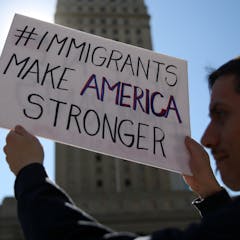
Articles on Developing countries
Displaying 41 - 60 of 99 articles

Climate change models predict tuna will leave the waters of Pacific Island nations, meaning they will lose a crucial revenue source.

After the acrimony of the Trump years, we can expect a very different feel to the latest G7 summit.

Paying out for vital services has a serious impact on mental health.

Fair global agreements, home-grown vaccines and sharing extra doses with poorer nations are all needed if we’re to ever emerge from this pandemic.

Despite moments of hope, worries about the present and fears that the future may be even worse have been rising for decades. What can geopolitics teach us about the global impact of fear?

A waiver on some intellectual property rules at the WTO for COVID-19 vaccines would ensure more equitable access, but wouldn’t solve all the problems facing developing countries.

Developing countries face greater risks raising money to deal with the pandemic. Zambia is now on the verge of being the first ‘COVID default’ and other developing countries could follow suit.

The TRIPS waiver makes COVID-19 treatments more accessible globally by enabling manufacture and distribution of COVID-19 drugs and medical supplies that would normally be protected by patents.

When it comes to leadership and innovation, there’s much that industrialised nations can learn.

With half the global workforce facing job loss, massive stimulus packages are needed to revive emerging economies and reduce mass unemployment, poverty and starvation.

The findings suggest that farmers will benefit from more accurate crop yield monitoring.

Reducing air travel may have a positive effect on climate change but it will inevitably damage developing countries that rely on tourism for their chances of prosperity.

While the US is a nation of immigrants, China is not. That’s a huge competitive advantage when doing business in emerging markets.

Plenty of Western officials and media outlets have criticized Libra – but it’s not meant for them.

There’s a lack of locally relevant knowledge to prevent and control non-communicable diseases in African countries.

Climate justice policies could potentially double as tools of colonialism that harm people outside the US.

The global cancer burden especially in developing countries is exacerbated by the high cost of treatment.

Bus Rapid Transit has powerful supporters around the world – but shouldn’t public transport be designed in the public interest?

If women don’t have access to quality emergency surgery, they can develop dibilitating complications such as fistula.

Donor-driven e-government projects in developing countries often attempt to transplant what was successful elsewhere. But success requires buy-in from locals – both governments and citizens alike.
